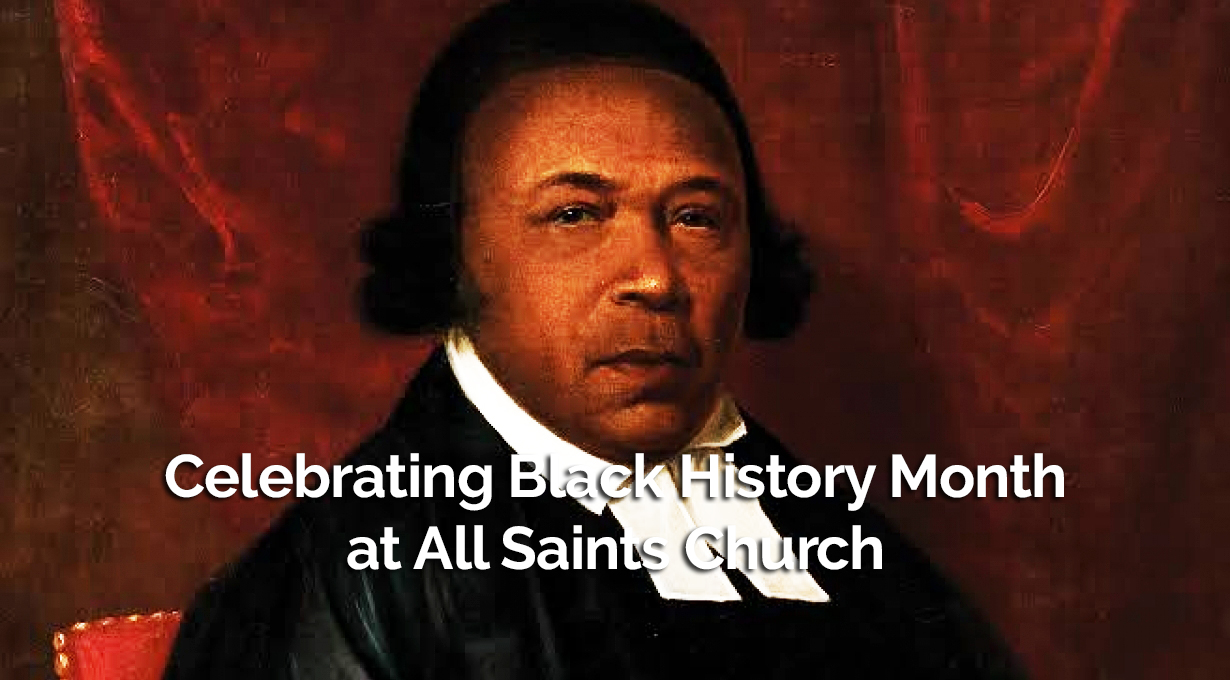Traditionally, Parish Celebrations has hosted a Pancake Supper in Sweetland Hall on Shrove Tuesday each year — but we’re not quite back to where we can gather in this way! So we offer the following as a way for you and your family to commemorate Shrove Tuesday and begin the Lenten season.
The History and Tradition of Shrove Tuesday
The 40-day season of Lent officially begins on Ash Wednesday. The day before, Shrove Tuesday, always falls 47 days before Easter Sunday, so the date varies from year to year and falls between February 3 and March 9. In 2022, Shrove Tuesday will fall on March 1. With our Catholic friends, Anglicans worldwide traditionally celebrate Ash Wednesday, but few of us can match our historical counterparts in observing any kind of Lenten fast, which traditionally also begins then.
Shrove Tuesday gets its name from the ritual of confessing one’s sins before Lent, known as “shriving,” that was a tradition in Europe going back to the Middle Ages. When a person receives absolution for their sins, one is forgiven for them and released from the guilt and pain that the sins have caused. In the Catholic or Orthodox context, the absolution is pronounced by a priest. At All Saints in 2022, absolution appears in the form of a bonfire where people offer up written representations of things in their lives they wish to release or transform.
An early church tradition during Lent advised abstention from anything killed, and the produce — like milk and eggs—of those animals. In pre-refrigeration days, that meant a lot of food had to be consumed so it wouldn’t go bad during the weeks leading up to Easter. So, Shrove Tuesday is also a chance to indulge yourself and use up the foods that weren’t allowed in Lent. Giving up foods, but not wasting them. Families would have a feast on the shriving Tuesday and eat up all the foods that wouldn’t last the forty days of Lent.
In the Anglican and Episcopal churches, pancakes became associated with Shrove Tuesday as they were a dish that could use up all the eggs, fats, and milk in the house with just the addition of flour. In the United Kingdom, pancake races form an important part of the Shrove Tuesday celebrations — an opportunity for large numbers of people, often in fancy dress, to race down streets tossing pancakes. The object of the race is to get to the finishing line first, carrying a frying pan with a cooked pancake in it and flipping the pancake as you run. Legend holds that in 1445 a woman in Olney, UK was making pancakes when the church bells began ringing to announce the service. Carrying her frying pan and wearing an apron, she raced to arrive at church on time.
Shrove Tuesday is a tradition celebrated in many places around the world and has many names. In many locales, celebration takes the form of a Carnival, the name of which derives from Latin as “remove meat.” Perhaps the most famous being Mardi Gras (Fat Tuesday) in New Orleans.
In Germany, Shrove is known as fausching and involves cowbells, yodeling, and lots of sauerkraut and beer.
In Spain and Mexico, Shrove is Dia de la Torta, or Omelette Day. In Hawaii, Malasada Day is celebrated with a fried dough pastry of the same name. In Estonia and Finland, the Shrove meal is pea soup. In Iceland, it’s salted meat and more split peas.
The customary treat for Shrove in New Orleans is the King Cake, a garish yet edible pastry sprinkled with purple, gold, and green sugar, with a plastic baby inside. If you get the slice with the baby, it’s good luck! (and you are on the hook to provide the cake next year!)
At All Saints Church Pasadena, we have traditionally hosted a pancake supper in Sweetland Hall on the Tuesday evening before Ash Wednesday to welcome the beginning of the Lenten season. Clearly, Shrove Tuesday this year will be different. But that doesn’t mean we’ll have to go without some pancakes! We’d like to help you continue this tasty tradition at home—with some ideas to get you started.
Create your Own Shrove Tuesday Pancake Supper
We may not be gathering in Sweetland Hall for pancakes this year, but that doesn’t mean you can’t celebrate Shrove Tuesday!
Below are some recipe suggestions – traditional and otherwise – to share with your family.
If you are a Facebook user, we also invite you to check out the All Saints Book of Common Recipes Group at https://www.facebook.com/groups/391792482033812, where you can find even more ideas for sweet and savory pancake recipes that will provide inspiration for your pancake feast. All parishioners are encouraged to contribute to our virtual cookbook by sharing favorite family recipes, photos and stories about meals and dishes that are special to you – whether you are a master chef, aspiring cook, creative dabbler or confirmed foodie!
Traditional Buttermilk Pancakes
When done right, there’s nothing like ‘em!
Buckwheat Pancakes
Old-fashioned and hearty!
Lemon Ricotta Blueberry Pancakes
A little more work than the others, but so worth it!
German Pancakes
Six simple ingredients, baked instead of grilled
Share with Others: Lenten Food Collection
In addition to cooking one or more of the delicious recipes above, we would also like to encourage you to help out those in our community who are experiencing food insecurity.
On Sunday, February 27th, on the lawn during the Sunday services we will be collecting food, household goods, and grocery gift cards to be delivered to Learning Works Charter School’s food pantry. Their food pantry plays a crucial role in Learning Works’ wrap-around service approach of helping traditionally underserved and neglected students in completing their education and starting adulthood on solid footing.
Please consider bringing something – unopened and unexpired – from the list below with you on Sunday morning to help make a positive difference in the lives of Learning Works’ students and families.
- Grocery gift cards (consider splitting your contribution into smaller amounts – e.g. rather than one $60 card, consider three $20 cards or six $10 cards — this gives Learning Works more flexibility in how they distribute the cards).
- Beans, rice, cereal, juice boxes, canned vegetables and fruits, peanut butter, ramen and Cup O’Noodles
- Baby food and formula
- Soap, feminine hygiene products, toilet paper, paper towels, Clorox wipes and sanitizer
And finally, we’d like to encourage you to take a look at some suggestions for your own Lenten experiences.
Filling Our Spirits During Lent
Let’s take a look at some ways to feed ourselves spiritually. The tradition at Lent is to go without for 40 days, but these past two years we’ve had to live without so many things!
So, instead of choosing something to remove from your life, consider adding something during Lent. Start by finding some quiet time to sit and look at the pantry of your mind and spirit. Are there things stored there that could be discarded? Old ideas, ways of thinking or suppositions? Gently ask that they go away, leaving space on your shelves for something new.
May we suggest (thanks to Staci Kennelly, Spiritual Direction ministry):
Meditation. There are free online sites, here’s one that rates some of them:
https://www.healthline.com/health/meditation-online and free apps, like UCLA Mindful (also in Spanish).
For a gentle Yoga class, look at Yoga with Adriene, there’s a 30-day yoga journey for beginners, free on YouTube. https://www.youtube.com/user/yogawithadriene
Daily prayer. There’s the Pray As You Go app, or online at https://pray-as-you-go.org/, a beautiful, gentle Celtic prayer every weekday plus one for the weekend. Free, though donations are welcome.
Go for a walk. Every day. Start slowly and build up over time. In your neighborhood or go up into our beautiful hills. Go solo or with the whole family. Phone apps can keep track of your progress.
Send a note/card or call someone who lives alone, just to let them know you’re thinking of them. Maybe even get together if that’s possible.
Read a book or start/join a book group.
Here are some good Lenten choices:
The Ignatian Workout for Lent: 40 Days of Prayer, Reflection, and Action, Tim Muldoon. Forty brief exercises—organized according to the four “weeks” of prayer from the Spiritual Exercises of St. Ignatius.
Bread & Wine, Readings for Lent and Easter, A compendium of meaningful and accessible devotions from various authors—Augustine, Eckhart, Gibran, Merton, Tolstoy, Wilde, C. S. Lewis, and more.
Praying Lent: Renewing Our Lives on the Lenten Journey, by Andy Alexander, SJ, “Reminds the reader that if we focus too much on what we give up we may miss the message of what God wants to give us during this grace-filled time.”
Participate in Lenten activities at All Saints. Check out the Lenten Events and Small Groups page for more information on what is being offered this year.



